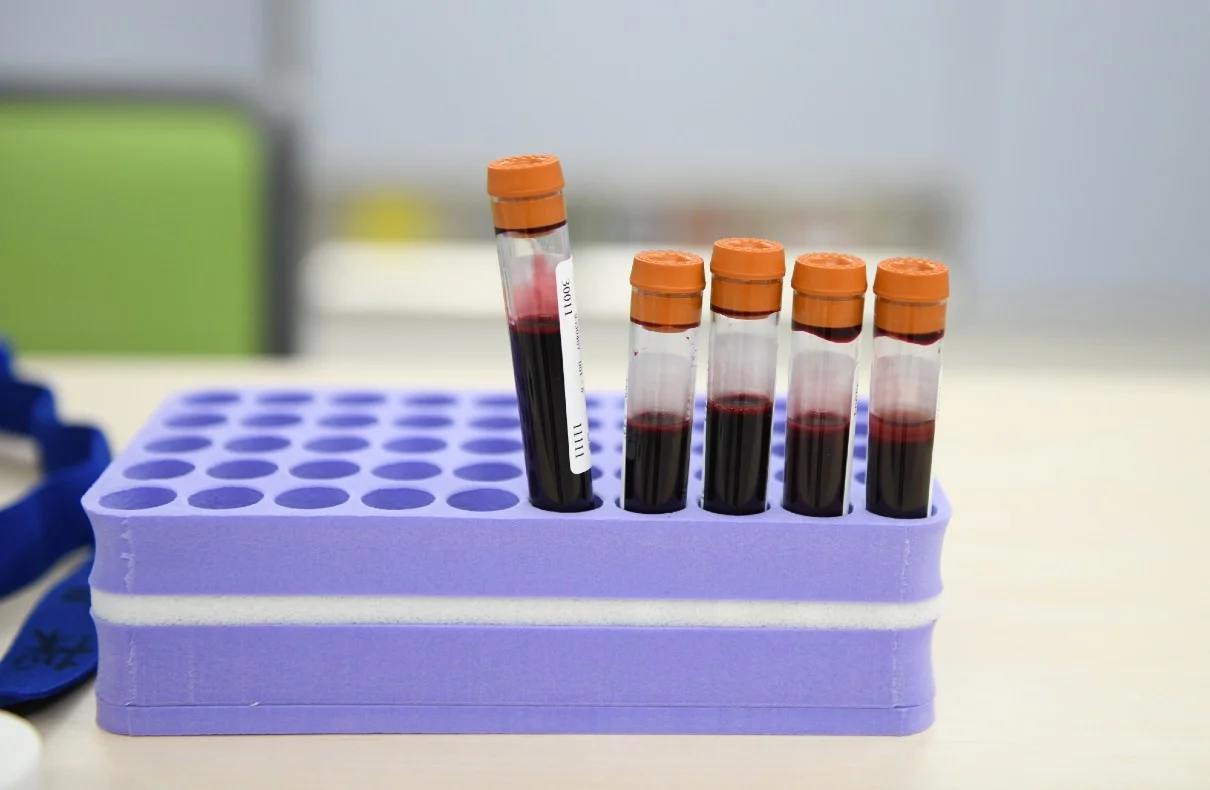
Alzheimer’s disease is a progressive neurodegenerative disorder that affects millions of people worldwide. Detecting this disease in its early stages is crucial for effective treatment and management. Traditionally, brain imaging techniques such as MRI scans and PET imaging have been used for diagnosis. However, these methods can be expensive and not widely accessible. Excitingly, recent breakthrough research has shown that a simple blood test may hold the key to detecting Alzheimer’s disease up to 15 years before symptoms manifest.
Current diagnostic methods for Alzheimer’s disease rely on the identification of amyloid and tau proteins, which form characteristic plaques and tangles in the brain. While brain imaging and spinal taps can provide insights into these proteins, they are invasive, expensive, and not widely available. The groundbreaking research conducted by Swedish scientists from the University of Gothenburg offers a promising alternative ─ a simple blood test that can detect signs of Alzheimer’s up to 15 years in advance.
The blood test measures the levels of a protein called phosphorylated Tau 217 (pTau 217), which is closely associated with Alzheimer’s disease progression. By identifying the presence of pTau 217, healthcare providers can determine a person’s likelihood of developing the disease. This early detection can lead to more effective treatment strategies, potentially slowing down or even preventing the onset of symptoms.
Weight Loss Drug Reduces Blood Pressure Levels: A Breakthrough Study
ALZpath, a pioneering company in the field of Alzheimer’s research, has developed a blood test known as the ALZpath pTau 217 assay. This innovative assay offers a less invasive and cost-effective method of detecting Alzheimer’s disease. The test has been proven to be as accurate as more advanced and expensive diagnostic techniques, including cerebrospinal fluid tests and brain scans. The high diagnostic accuracy of the ALZpath pTau 217 assay makes it a promising tool for early detection and screening.
ALZpath’s pTau217 test can detect the presence of amyloid plaques in the brain, a hallmark of Alzheimer’s disease. The test categorizes patients into three groups: likely, intermediate, or unlikely to have Alzheimer’s disease. This classification helps healthcare providers determine the appropriate course of action for each individual, potentially eliminating the need for further invasive investigations.
The Swedish trials conducted by Dr. Nicholas Ashton at the University of Gothenburg involved 786 participants. The results demonstrated the impressive accuracy of blood tests in detecting Alzheimer’s disease. The levels of pTau 217 in the blood were found to correlate with the severity and progression of the disease. Higher levels of pTau 217 indicated a higher likelihood or advanced stage of Alzheimer’s.
The accuracy of blood tests in detecting Alzheimer’s disease was found to be comparable to lumbar punctures, a more invasive and painful method of collecting cerebrospinal fluid. This breakthrough in diagnostic accuracy brings hope for a future national screening program for individuals over 50 years old. Early detection through blood tests could significantly improve the effectiveness of current treatments and pave the way for the development of novel therapies.
One of the significant advantages of blood tests for Alzheimer’s detection is their accessibility and cost efficiency. Unlike brain imaging techniques and spinal taps, blood tests are minimally invasive and can be easily incorporated into routine healthcare practices. This accessibility enables more widespread screening and early detection in primary care settings, where cognitive impairments often go undiagnosed or misdiagnosed.
Furthermore, blood tests offer a more cost-effective alternative to traditional diagnostic methods. Brain imaging techniques and cerebrospinal fluid tests can be expensive, limiting their availability and coverage. Blood tests provide a more affordable option that could revolutionize clinical care by providing objective biomarker-based information.
The introduction of blood tests for Alzheimer’s disease has the potential to revolutionize clinical care by providing objective and accessible biomarker-based information. Currently, more than 50% of patients with cognitive impairment remain undiagnosed or incorrectly diagnosed due to the lack of accessible and cost-effective tools. Blood tests can address this diagnostic gap, allowing for more rapid screening and accurate identification of Alzheimer’s disease pathologies.
Apple Watch Banned For Revolutionary Blood Oxygen Sensor
The ALZpath pTau 217 assay, already in use in multiple labs globally, has the potential to become a widely adopted test in primary care settings. Routine screening for individuals over 50 years old could become as common as screenings for high cholesterol. This widespread adoption of blood tests could lead to earlier diagnosis, facilitating timely interventions and personalized treatment plans for individuals at risk of developing Alzheimer’s disease.
In addition to its diagnostic potential, blood tests for Alzheimer’s disease hold promise for advancing research and treatment development. By identifying individuals at risk of developing the disease, researchers can study the progression of Alzheimer’s and evaluate the efficacy of potential treatments. Moreover, blood tests can aid in the identification of suitable candidates for clinical trials, enabling more effective testing of novel therapies.
The combination of a simple screening test, such as the ALZpath pTau 217 assay, with effective treatments for Alzheimer’s disease could have a profound impact on individuals and society as a whole. Early detection and intervention can potentially delay the onset of symptoms, improve quality of life, and reduce the burden on caregivers and healthcare systems.
